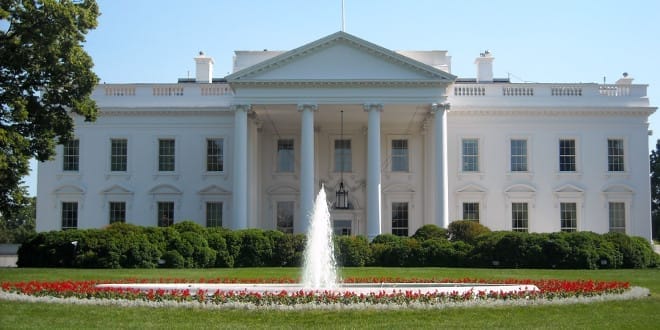The White House recently held a summit with top executives in Silicon Valley on the topic of combating terrorism online. Some of the biggest technology companies in America were represented at the summit including Apple, Facebook, Twitter, Microsoft, CloudFlare, LinkedIn, DropBox, Yahoo and PayPal. Also in attendance were NSA director Michael Rogers, White House chief of staff Denis McDonough and FBI director James Comey.
One of the major goals of the Obama administration is for tech companies to find terrorists on social media and messaging apps and map out their communication networks in order to determine who else is part of a terrorist cell. The government argues that tech companies already collect this sort of information for business purposes, so it's not a huge issue to simply share that information with the government to combat terrorism. Another issue which was brought up was whether Facebook's system to flag users who appear to be suicidal could also be used to flag users who appear to be radicalizing.
The topic of encryption also came up in the summit, which is not terribly surprising considering that Comey, who has a history of opposing strong encryption, was in attendance. The Intercept posted excerpts from a briefing which was provided by the White House to those in attendance, and it gives some insight into the summit's discussion on encryption.
To avoid law enforcement and the intelligence community detecting their activities, terrorists are using encrypted forms of communications at various stages of attack plotting and execution. We expect terrorists will continue to use technology to mobilize, facilitate, and operationalize attacks, including using encrypted communications where law enforcement cannot obtain the content of the communication even with court authorization. We would be happy to provide classified briefings in which we could share additional information.
Key Questions: We are interested in exploring all options with you for how to deal with the growing threat of terrorists and other malicious actors using technology, including encrypted technology, to threaten our national security and public safety. We understand that there is no one-size-fits-all solution to address this problem and that each of you has very different products and services that work in different ways. Are there high-level principles we could agree on for working through these problems together? And are there technologies that could make it harder for terrorists to use the internet to mobilize, facilitate, and operationalize? Or easier for us to find them when they do? What are the potential downsides or unintended consequences we should be aware of when considering these kinds of technology-based approaches to counter terrorism?
Also included in the excerpts are plans to "empower credible non-governmental voices that would speak out against ISIL and terrorism." The White House notes that countering terrorist propaganda is "made difficult by ISIL’s brutal rule and near total control of communications infrastructure in its territory in Iraq and Syria." The government calls on the tech industry to run a propaganda campaign and assist in the creation and distribution of anti-terrorism content.
Should the tech industry take a more active role in fighting terrorism? Leave your comments below.







